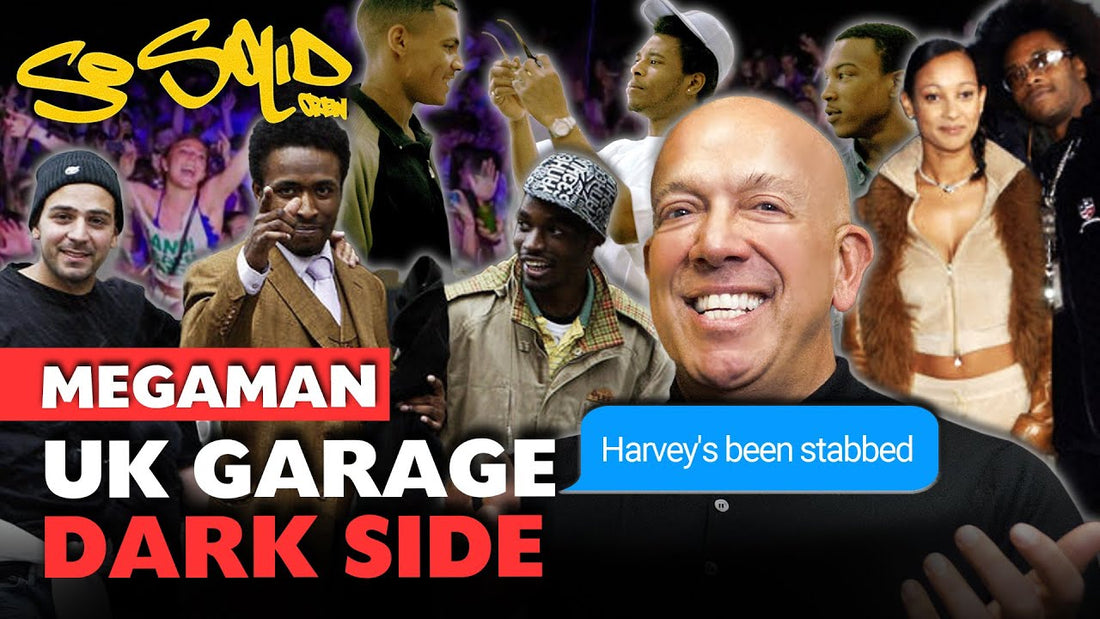The UK music scene has seen countless stories of grit, growth, and transformation. But few narratives hit as hard as that of MegaMan, co-founder of the legendary So Solid Crew. On a recent episode of the Criminal Connection Podcast hosted by Terry Stone, Mega Man opened up about life before fame, building an empire, and how music saved a generation.
The Origins of So Solid Crew
Before the charts and sold-out shows, MegaMan was just a South London kid with a dream. Growing up in Clapham Junction on a multicultural estate, he witnessed both the beauty and brutality of inner-city life.
“There was always this gang culture,” Mega said. “But it wasn’t always gangs—it was about repping your area. That was the norm.”
The spark for So Solid Crew began with pirate radio, where Mega and future members like Romeo, Swiss, and Lisa Maffia honed their craft. What started as underground MC’ing soon morphed into a movement.
From SOS to So Solid
Originally called SOS Crew, the group faced early legal threats from an already-established DJ with the same name. That’s when Mega stepped in with a rebrand that would echo through UK music history:
“I sat in my nan’s house and thought of the name ‘So Solid’. It stuck. That name meant something. We are solid. So solid.”
That brand became the foundation for Delight FM, their own pirate radio station, and later, their events like Garage Delight. It wasn’t just music—it was a lifestyle.
Making Music History: The Rise of UK Garage
By 1998, So Solid Crew had infiltrated the UK garage scene. But it wasn’t easy.
Mega explained that they weren’t welcomed with open arms. “Promoters were wary. They said, ‘Don’t bring them—they’re bad for the scene.’” But Mega had a vision—one that would change the sound of UK garage forever.
"Oh No" and "21 Seconds"
Their early success came from the underground hit "Oh No", which paved the way for the game-changing “21 Seconds”—a track that catapulted them into the mainstream.
“That record deal was mine. But I used my money to bring the whole crew in. I didn’t want to be the star. I wanted us all to win.”
That selflessness turned So Solid into a UKG institution—with a chart-topping album, sold-out shows, and global recognition.
Life on the Road: Fame, Violence, and Survival
With success came unwanted attention.
Mega described how So Solid’s shows were often targeted by gangs and that they had to roll deep for protection. "We’d roll 40 deep to a club. If you weren’t known to be heavy, you were a target."
He painted a vivid picture of the late '90s and early 2000s:
- Little to no surveillance.
- Clubs being sprayed with bullets.
- Artists robbed or attacked just for wearing flashy clothes.
The violence wasn’t just from outsiders—sometimes it was internal.
The Harvey Stabbing & Dizzee Rascal Incident
One of the most controversial incidents involved Dizzee Rascal, who allegedly groped Lisa Maffia on stage during a performance in Ayia Napa.
“It was disrespectful. It was sexual assault. And it was a slap in the face to what we stood for.”
Another infamous event saw Harvey stabbed during a brawl—again, a case of So Solid defending themselves rather than causing trouble.
Inside the Legal System: The 2004 Court Case
In 2004, MegaMan faced one of his biggest life challenges—being charged with murder alongside a friend. Though ultimately acquitted, he spent two years on remand, fighting for his freedom.
“I was just in the car. I had no part in the act. But I got charged the same. It was about proving my involvement—or lack of.”
The case highlighted how street fame and public perception often led to unjust targeting by police and the media.
The Ban That Changed the Game
So Solid Crew became the first UK act to be banned nationwide. Police pressure, gang associations, and media fear-mongering forced clubs and festivals to drop them.
“We were on TV. But clubs wouldn’t book us. Promoters said the streets followed us. That was our punishment for being too real.”
This "blackballing" didn’t just affect gigs—it forced the group to pivot entirely. While many would’ve folded, Mega Man chose to evolve.
From Music to Business: MegaMan’s Next Chapter
Following his acquittal, Mega re-emerged with a new focus—entrepreneurship.
He co-founded Solid Films, Solid Promotions, and Solid Clothing, partnering with investment firms to build brands beyond music. He also began mentoring artists, managing over 15 talents and helping them land record deals.
“I’ve spent 10 years helping others. Now, I’m being selfish. It’s my time.”
Lessons From the Streets: Leadership, Loyalty, Legacy
One thing was clear throughout the podcast: MegaMan was always the protector.
“I was never the bad boy. I was the good guy with a machete down his leg, making sure his boys got home safe.”
Despite run-ins with violence, betrayal, and jail time, Mega holds no grudges. Instead, he reflects with wisdom and gratitude—proud that his crew is alive, thriving, and still creating.
So Solid’s Legacy: More Than Just Music
So Solid wasn’t just a crew. It was a revolution.
They brought rap, grime, garage, and R&B to the mainstream. They inspired a generation. They showed kids from estates that they could make it.
“If you’re still doing the same thing 10 years later, something’s wrong. Evolve or die.”
Today, MegaMan stands not only as a UK garage pioneer but as a blueprint for transformation—from artist to executive, from survivor to leader.
Final Thoughts: Respect to the Real Ones
Terry Stone closed the episode by acknowledging the impact of So Solid and Mega's evolution.
“You had an organization, Mega. That mindset—that’s gangster.”
And he’s right.
Because real gangsters don’t just hold power—they build empires. They protect their people. They change the game.

